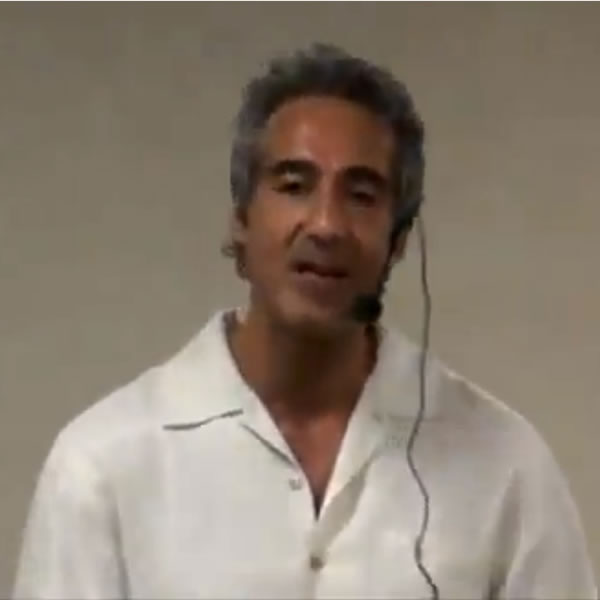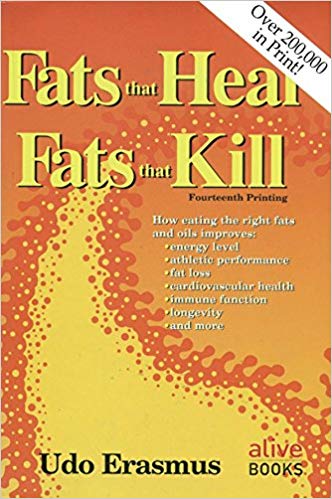The Healthy Body Pak ™ is the minimum nutritional supplement combination that ensures you get "The Mighty 90" vitamins & minerals. It's also referred to as "The 90 for Life", formulated by Dr. Joel Wallach.
Your body needs 90 essential nutrients
True health and wellness is only possible if it radiates from a solid, fundamentally-sound center. There is a core group of 90 essential nutrients that have the most positive effect in bringing vibrant health to the body’s complex multi-dimensional systems.

Did you know that only 8-12% of the typical nutritional supplements available today are actually absorbed by your body? That means that approximately 90% of typical supplements are flushed down the drain.
Youngevity’s supplements are 90-98% absorbable! Why is there such a difference? The secret is our exclusive source of plant-derived minerals that dramatically increase bioavailability (absorbability).
"Every man, woman and child needs 90 essential nutrients just to survive, much less to thrive. To put the odds in your favor to live as long as possible, with the highest possible quality of life, you must get these nutrients every day.”
~ Joel Wallach, BS, DVM, ND
What are the 90 Essential Nutrients?

60 Minerals
Calcium, Magnesium, Phosphorus, Potassium, Sodium, Chloride, Sulfur, Cobalt, Copper, Aluminum, Arsenic, Barium, Beryllium, Boron, Bromine, Carbon, Iodine, Iron, Manganese, Selenium, Zinc, Cerium, Cesium, Chromium, Dysprosium, Erbium, Europium, Gadolinium, Gallium, Germanium, Gold, Hafnium, Holmium, Hydrogen, Lanthanum, Lithium, Lutetium, Molybdenum, Neodymium, Nickel, Niobium, Nitrogen, Oxygen, Praseodymium, Rhenium, Rubidium, Samarium, Scandium, Silica, Silver, Strontium, Tantalum, Terbium, Thulium, Tin, Titanium, Vanadium, Ytterbium, Yttrium, Zirconium
2-3 Essential Fatty Acids
Omega 3, Omega 6, Omega 9
16 Vitamins
Vitamin A, Vitamin B1, Vitamin B2, Vitamin B3, Vitamin B5, Vitamin B6, Vitamin B12, Vitamin C, Vitamin D, Vitamin E, Vitamin K, Biotin, Choline, Flavonoids (Bioflavonoids), Folic Acid, Inositol
12 Amino Acids
Valine, Lysine, Threonine, Leucine, Isoleucine, Tryptophan, Phenylalanine, Methionine, Histidine, Arginine, Taurine, Tyrosine
Bioavailability
Youngevity's Plant Derived Minerals™ are extracted from humic shale, which is a layer of earth formed from ancient, mineral-laden plants. Humic shale is superior to other commonly-used supplement sources such as bentonite (ground up clay) or dried sea beds (ground up rocks).
As in plants, Plant Derived Minerals™ have a natural negative electrical charge that has two important benefits. First, it may enhance the transport and bioavailability of other nutrients, and second, it may support the body’s natural detoxification of toxins and heavy metals.
Youngevity has formulated dozens of comprehensive health "Paks". From weight loss to blood sugar balance to cardiovascular health to bone and joint health, the Paks are here to take out the guesswork and provide you with turn key nutritional solutions to your health goals.
Healthy Body Start Paks - Original or 2.0 for weight loss, bones and joints, digestion, brain & heart, blood sugar, athletes, anti-aging, on-the-go paks and more.
Healthy Body Start Pak 2.0
 BTT 2.0 Citrus Peach Fusion - 480g canister (1) EFA PLUS™- 90 soft gels (1) and NEW Beyond Osteo-fx™ powder - 357g Canister (1).
BTT 2.0 Citrus Peach Fusion - 480g canister (1) EFA PLUS™- 90 soft gels (1) and NEW Beyond Osteo-fx™ powder - 357g Canister (1).
Healthy Body Start Pak™ 2.0
BTT 2.0 Tablets (Pwd)

Beyond Tangy Tangerine® 2.0 Tablets – 120 tablets (1), Ultimate EFA PLUS™ - 90 soft gels (1) and Beyond Osteo-fx™ powder - 357 g canister (1).
BTT 2.0 Tablets (Pwd)
Anti-Aging Healthy Body Pak 2.0

BTT 2.0 Citrus Peach Fusion -450g canister (1), EFA PLUS™-90 soft gels (1), Beyond Osteo-fx™ powder - 357g Canister (1) and Cell Shield RTQ™-60 capsules.
Anti-Aging Healthy Body Pak™ 2.0
Healthy Body Bone and Joint Pak 2.0

BTT 2.0 Citrus Peach Fusion-480g canister (1), EFA PLUS™- 90 soft gels (1), Beyond Osteo-fx™ powder-357g Canister (1), Gluco-Gel™ 240 capsules (1) and CM Cream™ 2 oz (1).
Healthy Body Bone and Joint Pak™ 2.0
Healthy Body Weight Loss Pak 2.0

BTT 2.0 Citrus Peach Fusion - 480g canister (1), EFA PLUS™- 90 soft gels (1), Beyond Osteo-fx™ powder - 357g Canister (1) and Slender Fx™ REV™ (1).
Healthy Body Weight Loss Pak™ 2.0
Healthy Body Start Pak 2.0 Liquid

BTT 2.0 Citrus Peach Fusion - 480g canister (1), EFA PLUS™- 90 soft gels (1) and Beyond Osteo-Fx™ Liquid - 32 oz (1).
Healthy Body Start Pak™ 2.0 Liquid
BTT 2.0 Tablets (Liq)

Beyond Tangy Tangerine® 2.0 Tablets – 120 Tablets (1), Ultimate EFA PLUS™- 90 soft gels (1) and Beyond Osteo-fx™ - 32 fl. oz. (1).
BTT 2.0 Tablets (Liq)
Healthy Body Athletic Pak 2.0

BTT 2.0 Citrus Peach Fusion - 480g canister (1), EFA PLUS™-90 soft gels (1), Beyond Osteo-fx™ powder-357g Canister (1), Rebound fx™ 30ct Stick Pack (1) and Ultimate Gluco-Gel™ – 120 Capsules (1).
Healthy Body Athletic Pak™ 2.0
Healthy Body Brain and Heart Pak 2.0

BTT 2.0 Citrus Peach Fusion -480g canister (1), EFA PLUS™-90 gels (1), Beyond Osteo-fx™ powder-357g Canister (1), Ultimate EFA™ (1) and Ultimate Selenium™(1).
Healthy Body Brain and Heart Pak™ 2.0
BTT Basic 90 Pak

Beyond Tangy Tangerine® (420g canister) and Ultimate EFA™ - 60 softgels (1).
BTT Basic 90 Pak™
Healthy Body Start Pak - Original

Beyond Tangy Tangerine® - 420g canister (1), EFA PLUS™- 90 soft gels (1) and Beyond Osteo-fx™ - 32 oz (1).
Healthy Body Start Pak™ - Original
Shellfish Free Healthy Body Start Pak

Beyond Tangy Tangerine® - 420g canister (1), ULTIMATE MULTI-EFA™ - 90 soft gels (1) and BEYOND OSTEO-FX™- 32 oz (1).
Shellfish Free Healthy Body Start Pak™
Healthy Body Blood Sugar Pak 2.0

BTT 2.0 Citrus Peach Fusion - 480g canister (1), EFA PLUS™- 90 soft gels (1), Beyond Osteo-fx™ powder - 357g Canister (1) and Slender FX™ Sweet Eze™ (1).
Healthy Body Blood Sugar Pak™ 2.0
Healthy Body Digestion Pak 2.0

BTT 2.0 Citrus Peach Fusion-480g canister (1), EFA PLUS™-90 soft gels (1), Beyond Osteo-fx™ powder-357g Canister (1), Ultimate Enzymes® (1) and Ultimate Flora fx™ (1).
Healthy Body Digestion Pak™ 2.0
On-The-Go Healthy Body Start Pak

30 packets, each includes: BTT 2.0 (4 tablets), Ultimate Mineral Caps™ (1 capsule), Ultimate CAL® (1 capsule) and Ultimate EFA Plus™ (1 soft-gel).
On-The-Go Healthy Body Start Pak™


 In the body, caramelization/glycation of sugars can occur in conjunction with proteins, and as with caramelization of foods this can manifest itself as browning and subsequent degradation of various structures. Smaller systems are especially likely to be damaged; most especially tiny blood vessels and capillaries. Glycation is a leading cause of blindness and kidney diseases. Both structures are packed with thousands of miles of microscopic circulatory vessels. The net effect of this kind of damage can result in pockets of oxygen deprived, nutritionally starved, and toxin drenched tissue. Not good!
In the body, caramelization/glycation of sugars can occur in conjunction with proteins, and as with caramelization of foods this can manifest itself as browning and subsequent degradation of various structures. Smaller systems are especially likely to be damaged; most especially tiny blood vessels and capillaries. Glycation is a leading cause of blindness and kidney diseases. Both structures are packed with thousands of miles of microscopic circulatory vessels. The net effect of this kind of damage can result in pockets of oxygen deprived, nutritionally starved, and toxin drenched tissue. Not good!










